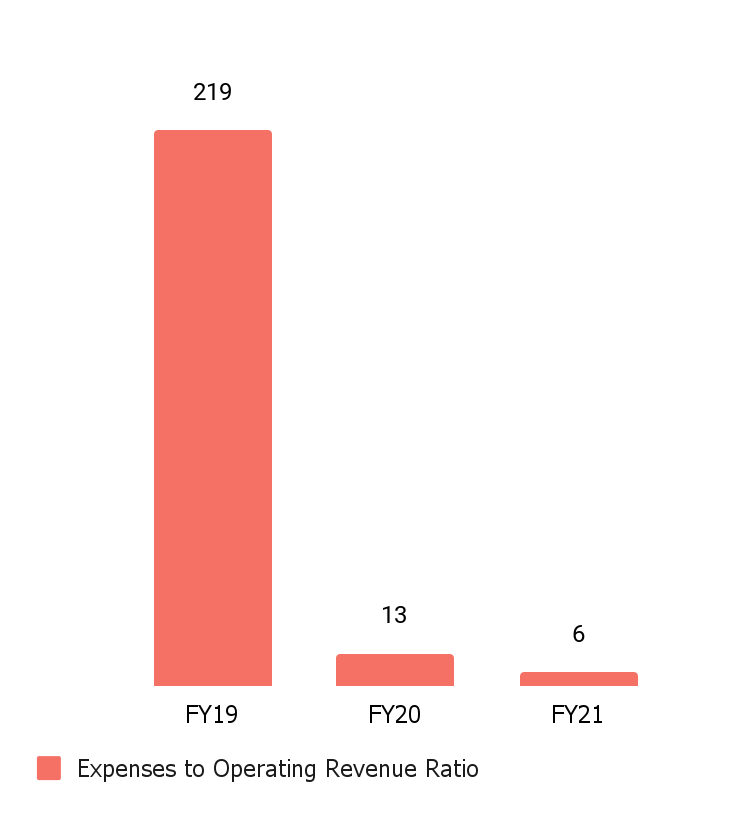
CEO Kabeer Biswas noted that at the time of the Reliance Retail fundraising, there were bigger offers, but the company had ‘optimised for the right partner’
Dunzo working with Morgan Stanley for the next fundraise worth $250-300 Mn
The next funding round will put Dunzo's valuation at $2-3 Bn, taking it into the unicorn club
Hyperlocal delivery soonicorn Dunzo, backed by Reliance Retail and Google, is planning a $250-300 Mn fundraising to boost its expansion plans, cofounder Kabeer Biswas said in an interview.
Biswas said, “In the previous round, we didn’t optimise for valuation. We optimised for the right partner,” choosing not to divulge any valuation figures ahead of the said funding round.
However, during the last funding round, Biswas claimed that there were offers on the table valuing Dunzo
Dunzo is likely to work with Morgan Stanley for the fundraiser, the process for which may begin in April. During the next fundraising round, the soonicorn will dilute a 10-15% stake, as noted by the cofounder.
This comes when Dunzo had raised $240 Mn in a fresh round of investment led by Reliance Retail Ventures Limited in early January this year. Then, the Mukesh Ambani-led Reliance Retail has picked up a 25.8% stake on a fully diluted basis in Dunzo for $200 Mn.
As part of the deal, Dunzo and Reliance will enter into certain business partnerships. Dunzo will enable hyperlocal logistics for the retail stores operated by Reliance Retail. It will also facilitate last-mile deliveries for JioMart’s merchant network.
The deal further helped Dunzo inch closer to the celebrated unicorn club. As per Inc42’s estimate, at the time of the deal, Dunzo’s valuation would have been close to $775 Mn.
With the next funding round, Dunzo will most likely join the unicorn club. Per Inc42 estimates, the startup will be valued at $2-3 Bn at the next funding round.
Qcommerce Startups And Fundraisers
Recently, apart from Dunzo, Blinkit has also raised $100 Mn from Zomato in March this year and had raised another $100 Mn in August last year. While the two companies remain in talk for a potential M&A, with a $300 Mn cash injection on the table, it is evident that for qcommerce, startups need to have a lot of liquidity.
Not only Blinkit, but Swiggy had also pledged $700 Mn to its qcommerce segment Instamart, which is also partnering with IPL this season. While Zepto had raised $100 Mn just five months after its launch in 2021. Interestingly, the less-than-a-year-old grocery delivery platform raised around $160 Mn within five months of its launch.
Lately, legacy players like RIL (via JioMart and its recent funding of Dunzo) and the Tata group (through its acquisition of BigBasket) have quickly entered the hyperlocal segment. There is potential and there is demand in the segment. However, it is a very cash-intensive phenomenon.
Take the example of Dunzo, which had been able to drive advertising and marketing expenses down 86% year-on-year. Combined with a reduction in operational costs, Dunzo was able to cut overall cash burn by 35% in FY21.

Dunzo’s expenses to operating revenue ratio was at 6 in FY21, which means that the company’s expenses were 6 times as much as their operating revenue. Immediately, it is clear that this is unsustainable without bringing it down to below 1. That is easier said than done. So, a high cash burn makes it a necessity to continue raising funds before profitability comes around.
The hyperlocal segment will only see growth in the foreseeable future. As per a RedSeer report, the qcommerce market in India is expected to reach $5 Bn by 2025 from the current $0.3 Bn. And according to an IBEF report, the last-mile delivery or the hyperlocal market in India is expected to reach $6 Bn – $7 Bn by 2024.
.svg)





 Fintech
Fintech Travel Tech
Travel Tech Electric Vehicle
Electric Vehicle Health Tech
Health Tech Edtech
Edtech IT
IT Logistics
Logistics Retail
Retail Ecommerce
Ecommerce Startup Ecosystem
Startup Ecosystem Enterprise Tech
Enterprise Tech Clean Tech
Clean Tech Consumer Internet
Consumer Internet Agritech
Agritech




























